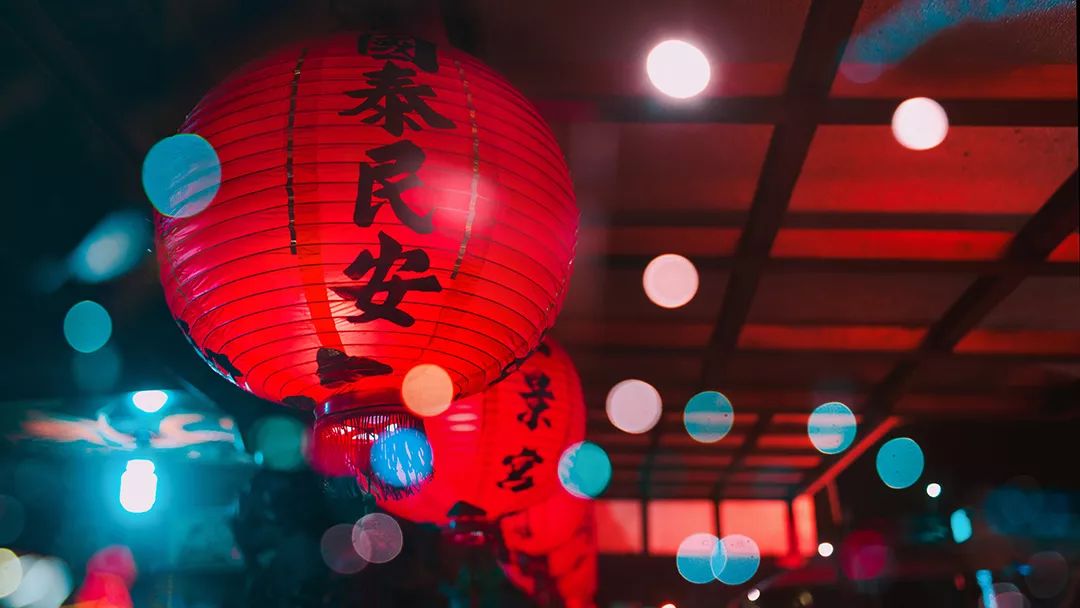
春节习俗
春节期间,人们总有很多事情要做,在这些习俗当中,你也许知道 团圆饭、吃饺子、放烟花这些必做的事情。那么中国人民还做什么其他有趣的事情呢?我们一起来看看吧!
1. Cleaning Up 大扫除
The ground, the walls, and every corner of the house need to be cleaned.
In Chinese, “Dust” is ahomophonefor the word “Chen", meaning the old. Therefore ayear-end cleaningis needed todrive the old things or the bad luck awayfrom the house, and get ready for a new start.
注:
1. homophone: /ˈhɒməˌfəʊn/
同音异形异义词
2. year-end cleaning:年末大扫除
3. drive... away:把...驱赶走
2. New Year Shopping新年购物
After cleaning people will go shopping, from a new piece of furniture to a new plate. Chinese people believe that since this is a new year they should buy a lot of new things. Purchasing new items also symbolizes welcoming new things and getting ready for a new start.
A variety of foods are sure in their shopping list. Meat, vegetables, fruits are must, while candies and nuts are popular items.
注:
a piece of furniture: 一件家具
purchase new items: 购买新的东西
symbolize: 象征、标致
a variety of foods: 多种多样的食物
3. Paste Spring Festival Couplets 贴春联儿
Couplets are typically pasted on doors and as a part of the festival's decoration. The couplets include two veritcal scrolls on two sides and a horizontal scroll on the top.
注:
couplets:对联
vertical scroll:竖批 vertical 竖直的
horizontal scroll:横批 horizontal 水平的
4. Paste the “Fu” Character 贴福字
Thecharacter“Fu”, meaninggood fortuneor happiness, is used to express people's good wish and yearning for the future, so people usually paste it on the gates or some furniture in the house during the Chinese New Year. Pasting the “Fu”upside down, meaning the arrival of happiness or good fortune,isawidely acceptedcustom among Chinese people.
注:
character:汉字
good fortune: 好运
upside down :上下颠倒
be widely accepted:被广泛接受
5. Chinese Knots 中国结
Chinese knots are prepared to decorate houses during the festival. there are small Chinese knots used as gifts or curtain decorations, and also big ones ashanging ornamentsin the house.
注:
1. hanging :悬挂的
2. ornament: /'ɔrnəmənt/ 装饰品
6. Firecrackers and Fireworks 鞭炮和烟花
Firecrackers are alwaysset offat midnight. In some places, people also set off firecrackers on the morning of the first day of the New Year. The use of firecrackers can be traced tothe legend of the Monster Nian 2,000 years ago, when people threw bamboo into the fire to drive away the monster. Aftergunpowderwas invented, firecrackers replaced the bamboo.
注:
firecracker and firework 鞭炮和烟花
set off fireworkd 燃放烟花
the legend of the monster Nian:Nian兽的神话
gunpowder: 火药
7. Door Gods Pictures 门画
The Gods of the Door, are among the most popular gods for ancient Chinese people.
During the Chinese New Year, people paste their pictures on the doors todrive awaytheevil spirits, keep the house safe, and encourage the good fortune.
注:
1. drive away: 驱赶走
2. evil spirits: 鬼魂
8. Eating Dumplings 吃饺子
The most important food during Chinese New Year is the dumplings, which are made with flour andstuffed with different fillings. It is a custom to eat dumplings on the New Year’s Eve, the 1st and the 5th day of the New Year. Because their shaperesemblesthemonetary ingotsused in ancient times, dumplingsare believed tobring wealthin the coming year. People wrap coins, candies, or peanuts in some of the dumplings to express different blessings, for example a coin for wealth, candy for sweet life, and peanuts for health and longevity.
注:
stuffed with diffrent fills: 填充着不同的馅儿
resembe:像;与…类似,与…相似
monetary ingots:货币锭、货币元宝
be believed to...: 被认为...
in the coming year:在即将到来的一年
wrap coins: 包裹硬币
longevity: /lɑŋˋdʒɛvətɪ/ 长寿
9.Family Reunion Dinner家庭团圆饭
Asthe festivalapproaches, family reunion becomesthe major concernof every Chinese. No matter how far apart the family members are, they would get back home for the biggestannual gathering. Aluxurious home-made dinnerisserved. Besides the dumplings, a whole fish is a must,standing forasurplusand fortune of the New Year.
注:
as... approache: 随着...的到来
major concern: 最关心/关切的事情
annual gathering: 一年一度的聚
luxurious: /lʌɡ'ʒʊrɪəs/ 奢华丰盛的
serve: 供应(食物)
stand for: 代表着...
surplus: 剩余
10. Give Red Envelopes 给红包
Red envelope, also known as lucky money, is prepared for children by the elderly. In folk culture, children will live safe and sound for the whole year if they get the lucky money.
注:
red envelope:红包
lucky money:压岁钱
folk culture:民间文化
safe and sound: 平平安安地
春
节
以上10个习俗是比较普遍的春节传统,我们一起来回忆一下,自觉不要看答案,做做几个选择吧!
1. Why do Chinese people have to clean up for Spring Festival?
A. No any significant reasons, they just want to be clean.
B.Because cleaning up is needed to drive the old things or the bad luck away from the house, and get ready for a new start.
2. Why do Chinese paste the 'Fu' character upside down?
A. Because they think it looks nice that way.
B. Because pasting the “Fu” upside down, meaning the arrival of happiness or good fortune.
3. Why do Chinese paste Gods of the door on doors?
A. Because their pictures on the doors can drive away the evil spirits, keep the house safe, and encourage the good fortune.
B. Because they look nice
春
节
关于春节的习俗介绍就到这里啦,请在评论区留言告诉我们,除了上面这些习俗之外,你们还会做哪些事情呢?期待你的回复,小编会一一查看的哦!
















